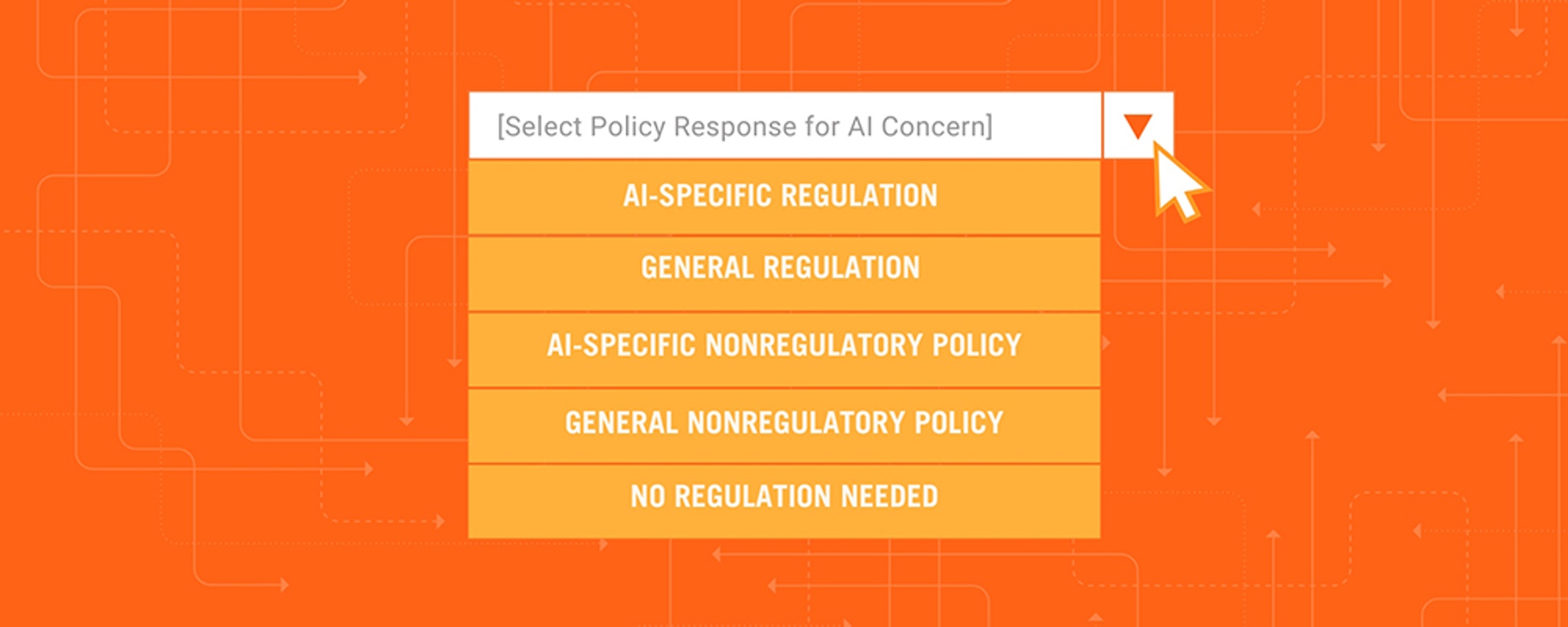Artificial Intelligence
Navigate forward to interact with the calendar and select a date. Press the question mark key to get the keyboard shortcuts for changing dates.
Navigate backward to interact with the calendar and select a date. Press the question mark key to get the keyboard shortcuts for changing dates.
As every sector of the global economy and nearly every facet of modern society undergo digital transformation, ITIF advocates for policies that spur not just the development of IT innovations, but more importantly their adoption and use throughout the economy. In the area of artificial intelligence, ITIF studies issues related to competitiveness, governance, ethics, development, and adoption.

Vice President and Director, Center for Data Innovation
Information Technology and Innovation Foundation
Read BioFeatured
More Publications and Events
February 17, 2026|Events
Tools, Skills, and Culture: Unpacking Global Trends in Public Sector AI Adoption
Taking place as part of the India AI Impact Summit 2026, this discussion will connect these insights to the Summit’s broader focus on scaling real-world AI impact. It will explore how policymakers can strengthen public sector AI adoption in practice and translate AI ambition into sustained improvements in public services.
January 22, 2026|Presentations
Building Global Consensus on AI
Daniel Castro speaks about building global consensus on AI at a workshop hosted by Peking University.
January 20, 2026|Events
Advancing Multilateral AI Partnerships: A Pre-Summit Event for 2026 AI Impact Summit
Ahead of the 2026 AI Impact Summit in New Delhi, the Center for Data Innovation and The Dialogue are convening an official pre-summit event, sponsored by Google, in Washington, D.C., on January 20, 2026.
January 12, 2026|Blogs
Fact of the Week: Construction Industry Facing a 439,000-Worker Shortage Driven by the Growth of Data Centers
As of November 2025, with over 400 data centers currently under development, the construction industry is facing a shortage of roughly 439,000 workers.
January 8, 2026|Blogs
Ten Ways Policymakers Should Respond to the Grok Bikini Fiasco
The Grok bikini controversy highlights real harms from AI misuse, but it also shows that the right response is enforcing existing laws, holding bad actors accountable, and pursuing tech-neutral, proportionate policies—rather than rushing into broad, AI-specific regulation that risks undermining free expression and innovation.
January 7, 2026|Blogs
New York’s AI Safety Law Claims National Alignment but Delivers Fragmentation
New York’s AI safety law claims alignment with California, but its small deviations create duplicative state requirements that fragment U.S. AI policy and increase compliance costs without improving safety.
January 5, 2026|Blogs
Top 10 Tech Policy Pronouncements, Prognostications, and Questions for 2026
If the year ahead in technology and innovation policy lives up to its potential, it could be a consequential one because there is a long list of important issues on the table. Herein, we offer 10 that are on top of our minds.
January 5, 2026|Blogs
Fact of the Week: Commuting Areas Far From AI Hotspots Experienced 17 Percent Lower Growth in AI Jobs
A report finds that firms that are 125 miles from the closest AI hotspot, defined as an area with over 1000 AI publications or patents, experienced 17 percent lower AI job growth between 2007 and 2019.
January 5, 2026|Blogs
How Yesterday’s Web-Crawling Policies Will Shape Tomorrow’s AI Leadership
The Internet may be forever, but regulatory frameworks should not be. Decisions made today about web crawling will help determine where the next generation of AI leadership emerges—whether in Europe, the United States, or elsewhere.
December 18, 2025|Blogs
AI’s Job Impact: Gains Outpace Losses
AI isn’t destroying jobs; it’s creating them. At least in 2024, the surge in AI activity and data center construction generated more jobs than AI displaced.






